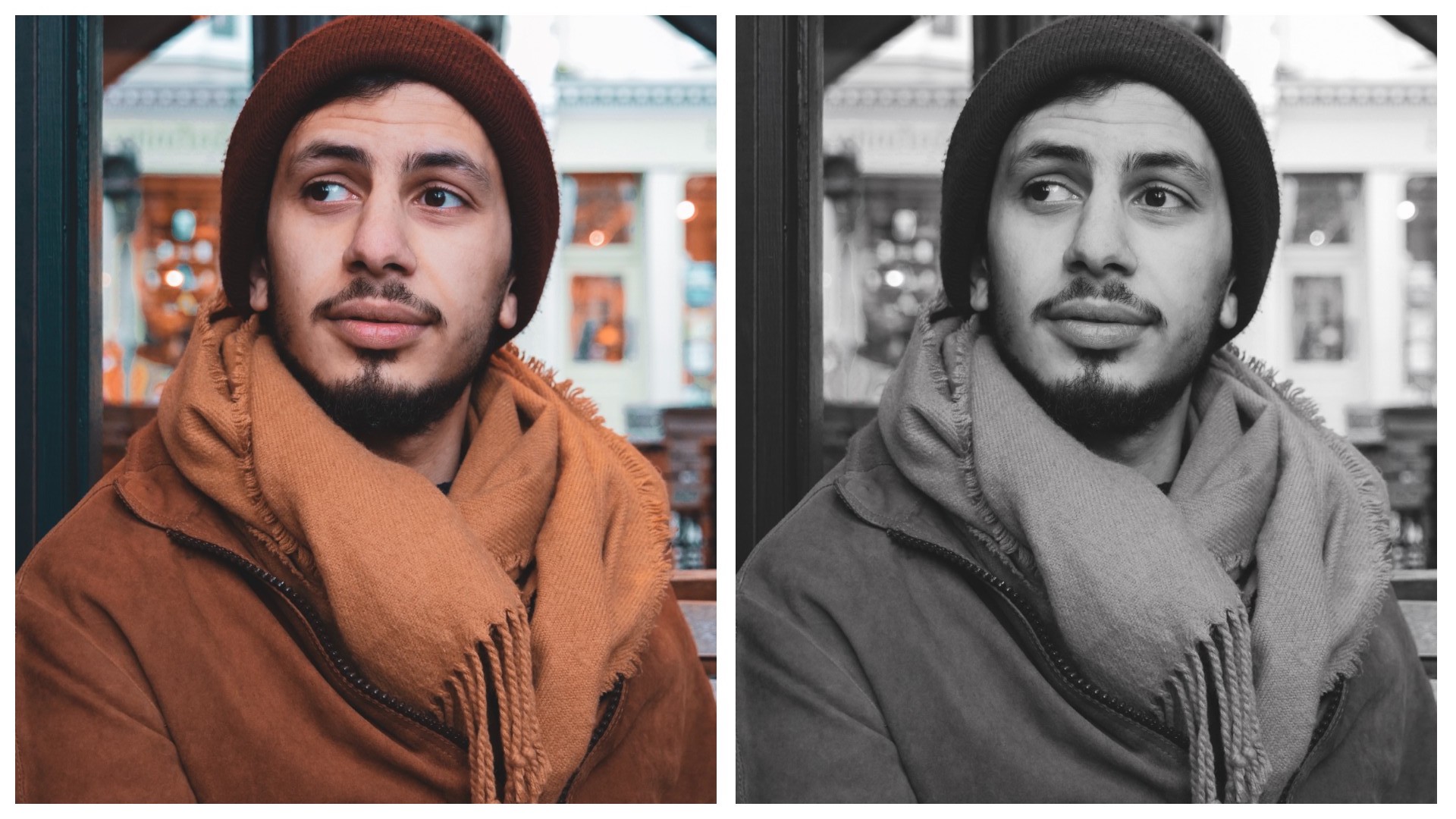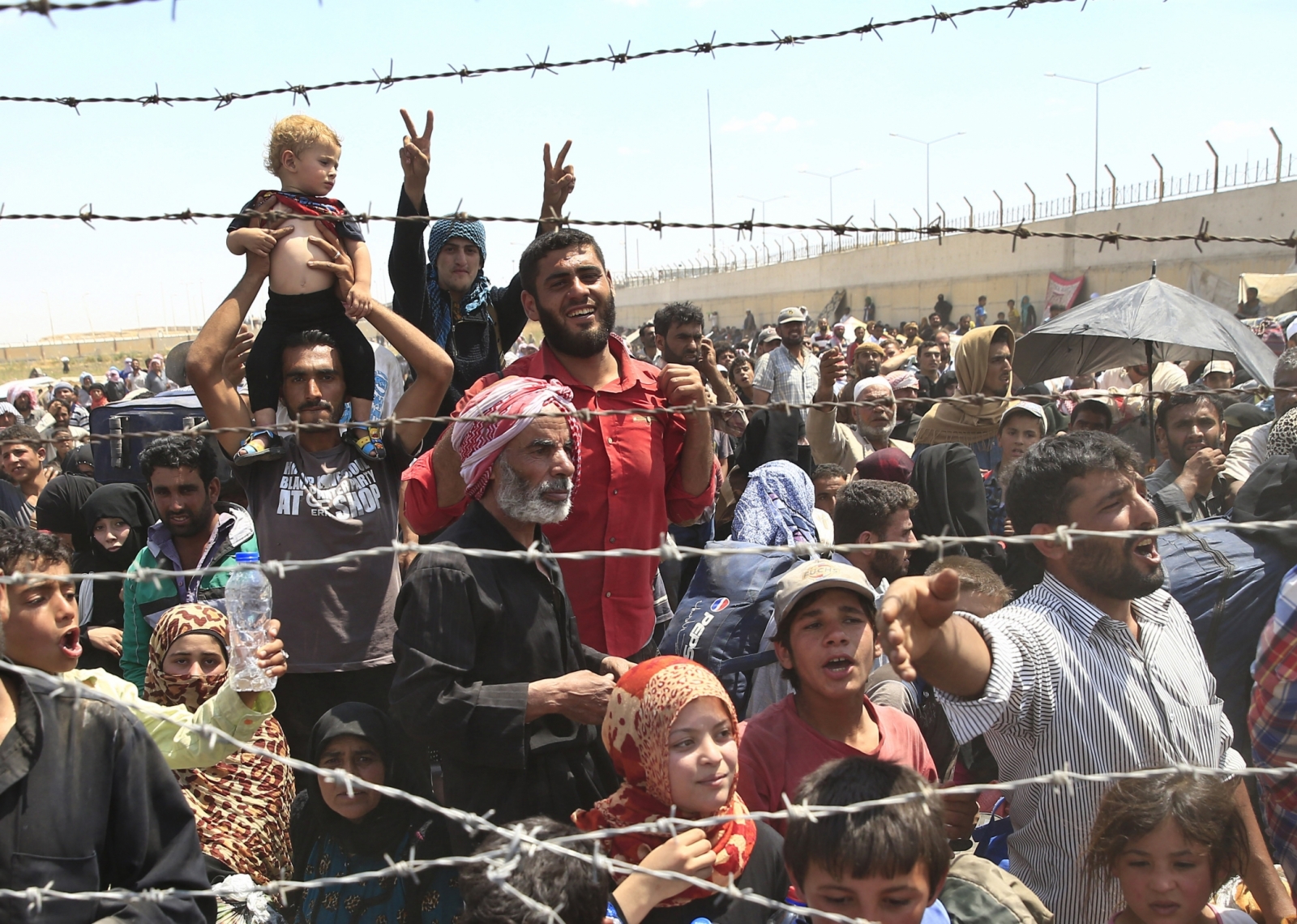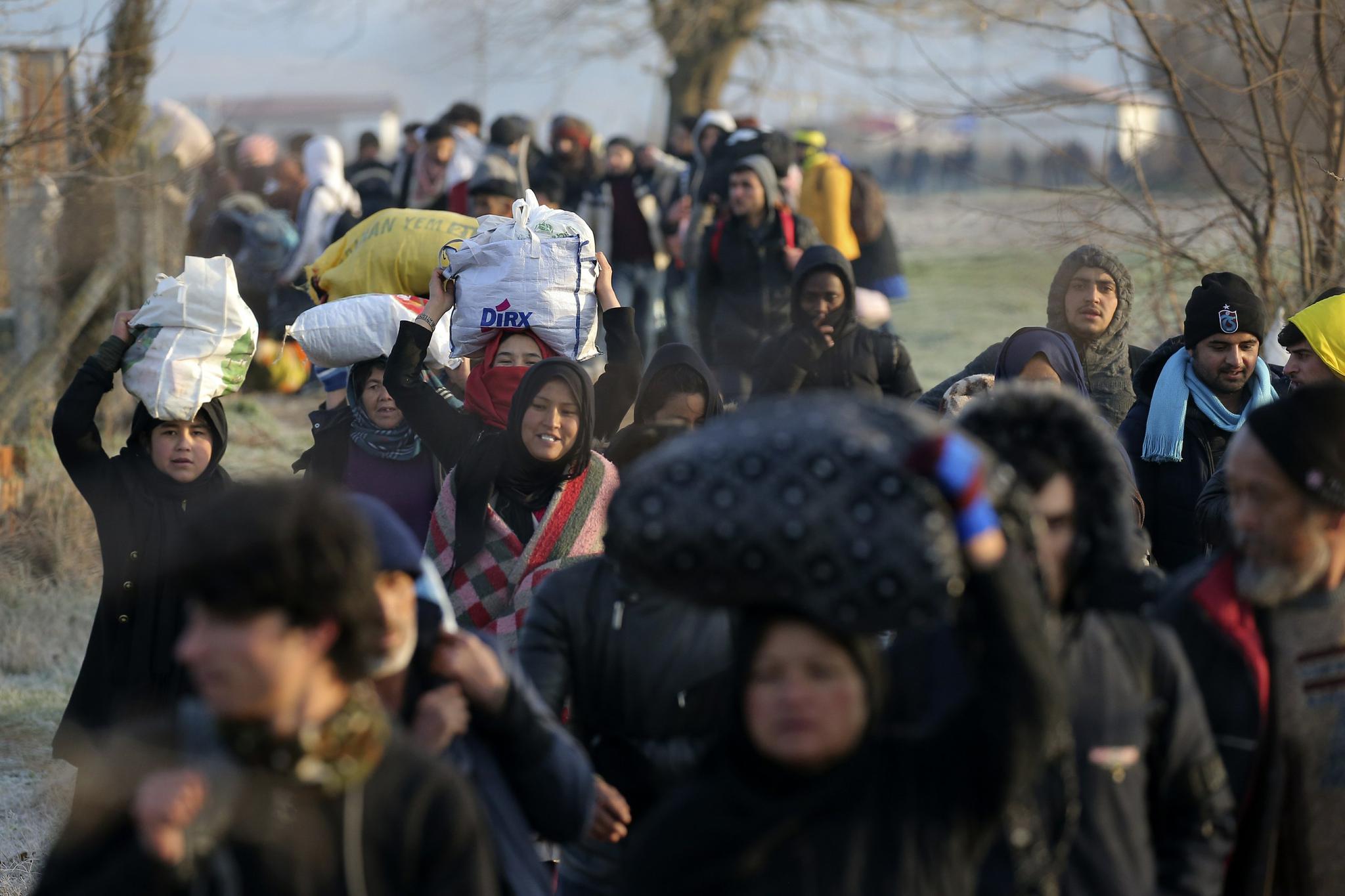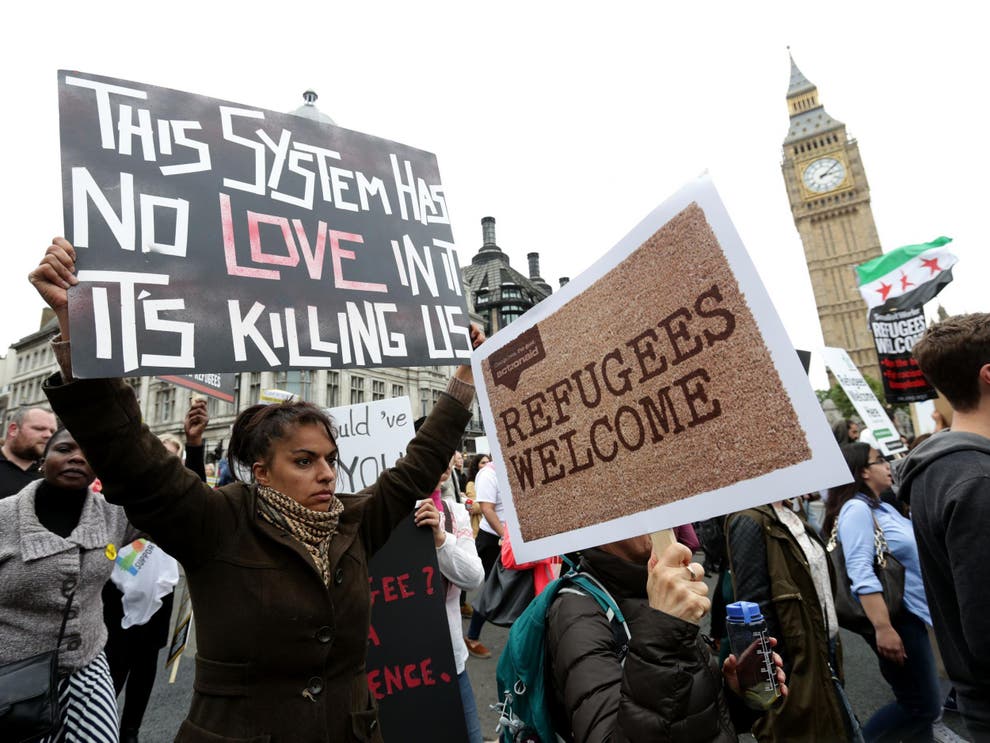From one battlefield to the next: the mental health of young asylum seekers
Refugees arriving in the UK are faced with a difficult and hostile asylum-seeking process, which severely impacts their mental health, often to breaking point. What will it take for things to change?

22 months ago, Ayman Alhussein arrived in the UK, alone and in a suitcase.
“It gets harder everyday,” the 25-year-old says. “It’s been nearly two years and I’m still waiting. It’s like being in prison but I’m on the outside.”
Ayman lived in Syria his whole life. He was a regular boy with dreams and ambitions.
But by 2012, as the Syrian war was in full swing, with no notice, 18-year-olds were forced into military service and anyone who rejected the regime would be put in prison.
Ayman, who had just turned 18 was left with the ultimate decision: stay and die, or leave and maybe live.
He escaped to Turkey with hopes of starting a new life, but this didn’t last long. “After four years in Turkey and graduating university, I found out that refugees couldn’t work. I had to leave,” he says.
So Ayman, like thousands of other refugees, flocked to the Calais Jungle, the infamous camp used from 2015 to 2016 as a pit stop for those hoping to make it to the UK. Doctors of the World called the conditions “diabolical” and far below minimum standards. Cramped, dangerous and contaminated with diseases, it was the last thing these refugees needed after everything they’d been through.
Over the 14 months he spent in the northern French camp, Ayman tried everything to make it across the channel.
He tried jumping onto trains and lorries every two or three days with friends he made in the camp. But that didn’t work. He tried creating fake documents to slide his way through checkpoints. That didn’t work either. He tried going to airports and testing his luck. But no luck there.
At 23, Ayman got inside a suitcase and had a friend put him on a coach leaving from Paris to London. He was caught the first three times, but on the fourth try, it worked.
He spent four hours inside – exhausted, terrified and struggling to breathe. He listened and waited until he knew he had arrived. He clawed his way out of the suitcase and stepped onto UK soil for the first time. He smiled, knowing he had made it.
But this was just the beginning of a long journey.
***
Alex Tekle was just 18 when he died.
He fled the tyranny of Eritrea, where children were forced into joining the national service from a very young age. He spent as long as a year in the Calais Jungle. He applied for asylum through the resettlement process but was rejected without reason. Desperate for a new life, 16-year-old Alex made his way into the UK in the back of a refrigerated lorry.
Upon arrival, he gave border officials a date of birth which meant he was nearly 18 years old at the time.
Despite still being a minor, Alex’s “age” placed him within the 13-week window of turning 18. In the UK asylum process, 18 is the cut off age for care leaver support.
As he was considered just weeks away from turning 18, immigration officers held him in a detention centre in Kent until his birthday and denied him the necessary support.
“It’s a set of rules that don’t apply well to unaccompanied minors. If you don’t have parents, you need support, whether you’re a teenager or a young adult,” says Benny Hunter, a writer and campaigner on migration and asylum.
“You can imagine that after spending a year in camps and then riding on the back of a lorry, you lose track of things like your age,” Hunter says.
Hunter met Alex in Calais, while he was working with unaccompanied minors for a charity when Alex had just turned 16. He says: “It was shocking to see the barriers these refugees are up against. Once I was back in the UK, I realised the discrimination they face and the hostile environment they have to navigate in terms of the asylum system.”
“It’s all a much more complex narrative than the media portrays,” Hunter adds.
Because of the ad hoc structure of the Jungle, volunteers often took on the role of mentor and supporter for the refugees, too. Hunter gained the trust of several unaccompanied minors and kept in touch with them. Alex was one of them and the two got very close after Alex made it over to the UK. He trusted Hunter.
Deemed to be 18, Alex was sent to live in an adult asylum seekers’ hostel. After being beaten up badly, he ran away and became homeless. He began couch surfing and staying with other Eritrean asylum seekers.
“People underestimate how important support from peers is for a young asylum seeker,” Hunter explains. “The government and the system failed him so he took refuge in the people that he knew would care for him and would understand.”
Worried about his friend, Hunter reached out to the Refugee Council who forced social services in Croydon to assess Alex’s situation. But with no proper safeguarding or support system, it was the beginning of a downward spiral.
A year after he arrived in the UK, Alex was losing contact with his family back home and still had no word on his asylum claim. He became very depressed and was drinking heavily.
He was found dead on December 6th, 2017, and is believed to have taken his own life under the influence of alcohol. An inquest is ongoing.
***
More than half of all refugees are children. But despite the dangerous journey, many are fleeing their countries alone, and every year, 3,000 unaccompanied minors arrive in the UK in search of a better life.
According to the Children’s Commissioner for England, asylum seekers are people who seek refuge in another country by lodging an asylum application, often due to major conflicts or human rights abuses.

“The asylum process is complicated and I understand it has to be,” says MP Thangham Debbonaire, chair of the All-Party Parliamentary Group on Refugees. “But there’s an instant comparison between refugees going through the asylum-seeking route and those going through the resettlement route.”
Refugees that claim asylum through the resettlement route, in which their asylum status is already confirmed, are given help and support to integrate into their new lives. This includes schemes such as Section 67 of the Immigration Act 2016 (also known as the Dubs Scheme) or through the Dublin III Regulation.
But most people aren’t so lucky. In fact, 53 per cent of asylum seekers have their applications for refugee status turned down, according to Home Office statistics. The success rate for unaccompanied minors is even lower, at just 4 per cent.
As they wait for their asylum status, unaccompanied children are placed in the hands of local authorities. A Children’s Society report states that in the last few years, the number of asylum-seeking minors looked after by English local authorities has increased tremendously.
But for those considered to be over 18, life is significantly harder. With no asylum claim and no care leavers’ support, they are unable to go to school or work.
“These are young people who have no understanding of the situation they’re in and no capacity to apply for education by themselves in a foreign country,” Hunter says. “That’s why it’s so important for young refugees to get the support they need when they arrive, so they don’t have to navigate everything in a very complicated environment by themselves.”
Asylum seekers are left in a state of limbo, having to wait for months, and sometimes years.
“They have no answers, nowhere to go and no one to turn to,” says MP Debonnaire. “This feeling of dependency and despondency, it’s so damaging to these young people.”
***
From the moment they set foot in the UK, refugees are met with distrust and disbelief.
When asylum seekers arrive, they often don’t have evidence of their age. The official guidance issued by the Home Office states that age assessments “should only be carried out where there is significant reason to doubt that the claimant is a child”, but this is rarely followed.
With no scientific basis for their assessments, border officials can do one of three things: accept the age the young person claims to be, send the refugee to local authorities for age assessment due to uncertainty, or dismiss the case because there is no doubt they are over 18.
Nearly half of all unaccompanied children who claim asylum have their age disputed every year.
Many young people, who have experienced harrowing situations, have significant mental health issues that can impair their ability to access the “truth”, and will not respond well to interrogation techniques used by border officials.
“If you come from a war zone, alone and hungry, it’s entirely possible to look a lot older than you really are,” says MP Debbonaire. She believes that it is unfair for people without proper medical experience or the necessary training to determine the fate of these young refugees.
“There’s this public perception that children are trying to cheat the system. This culture of disbelief is so harmful,” she says.

For too many children, their first experience in the UK is being told they are lying and having a fundamental aspect of their identity questioned. They lose trust in the system and the authority figures who are meant to be supporting them.
Hunter has seen this first hand. “There’s such a disparity between the level of support you receive as a child in the care system and the lack of support you receive as an adult asylum seeker. It’s not just a number,” he says.
He adds: “The system is made to poke holes in their stories and intentionally intimidate them. But when you’re dealing with very vulnerable young people, this can get dangerous.”
***
When unaccompanied asylum seeking minors arrive in the UK, they undergo the strengths and difficulties questionnaire (SDQ) to identify whether they require mental health support.
The results of the questionnaire from March 31st, 2016, show that despite the trauma these children would have been through, their average SDQ scores were significantly lower than those of other looked after children. This suggests that they have little need for mental health support.
But this is far from the truth.
According to a United Nations High Commissioner for Refugees (UNHCR) report, asylum seekers face a variety of mental health disorders. They experience severe emotional problems, such as sadness, fear and anxiety as a result of losing loved ones and witnessing violence and death. They may experience fatigue, have trouble sleeping or a lack of appetite, due to constant stress over their asylum claim and the safety of their family members. These young people often resort to negative coping approaches, usually swinging between withdrawal and aggressive behaviour.
The most common mental health issues that young refugees are diagnosed with are trauma-related, such as post-traumatic stress disorder (PTSD). According to Public Health England, asylum seekers experience symptoms of PTSD that are “extreme”, and is more than just remembering certain events, but rather, is “a combination of disabling recall, dreams and memories”.
6 months ago, Ayman found out that he has PTSD.
“I spent years thinking that this was normal,” the Syrian asylum seeker explains. “I had no idea this disorder existed.”
When he first arrived in the UK all those months ago in a suitcase, he felt happy, safe, and very hopeful. After all the struggles he had been through, he felt like he could finally switch off the survival mode that had been ingrained in him. He tried to erase everything and start over.
“The bad memories would come back and haunt me in my sleep. They started taking over me everywhere I went. If I see an airplane, it would remind me of the planes dropping bombs in Syria. Even fireworks depress me,” Ayman says.
He adds: “It’s a feeling that you can’t really explain. It doesn’t look like an illness. You don’t notice it, and yet it’s always there.”
There are many trigger points for PTSD but many asylum seekers experience severe anxiety over the possibility of being detained. Detainment is often unexpected, with no clear reason as to why they are being sent to detention centres. Despite the government promising to end this practice in 2010, between March 2016 and March 2017, 51 children were locked in immigration detention.
A Royal College of Psychiatrists study shows that refugees in Western countries are about 10 times more likely to suffer from PTSD than their age-matched general populations. Despite making up 5 per cent of London’s population, refugees and asylum seekers form 11 per cent of the cases of many mental health services.
“It’s very common for these young people to experience suicidal ideation, depression, anxiety and PTSD,” says Kalyani McCarthy, national project manager of Surviving to Thriving. “These are normal responses to the extraordinary experience that they’ve had.”
“They often feel like they’re dealing with this alone, but unfortunately, it’s extremely common amongst their community,” she says.
Surviving to Thriving is a partnership project between the British Red Cross, the Refugee Council and Uprising that seeks to provide adequate services to unaccompanied asylum seekers around the UK.
Since the project began in 2017, 192 young people have received one-to-one and/or group therapy. The 11-25-year-olds attending the therapeutic services undergo a survey to determine their emotional wellbeing. While there have been improvements within each area, self-harm tendencies are still a major problem.

“It can be something as simple as feeling the cold wind against me,” Ayman says. While homeless in France, he was brutally beaten by French riot police and fascist groups. “No one was there to help me, I had never felt so alone and afraid in my life. I thought I was going to die.”
Two years later, the police and fascists still beat him every night in his sleep.
“As asylum seekers we are five times more likely than the average citizen to experience a mental health problem. And yet, ironically, we are much less likely to receive support,” Ayman says.
“Nobody has ever come to me and asked me how I was feeling. Nobody has ever asked if I needed any mental health support. I accepted the idea of fear, worry and depression. It became a part of me,” he says.
In many countries, such as Ayman’s home of Syria, mental health is not understood and often carries negative connotations. Unless the case is severe, suffering is commonly seen as a normal part of life, and people rely on their family and friends to overcome emotional troubles.
So many asylum seekers like Ayman and Alex end up bottling up their emotions, not knowing that this can have detrimental effects on their wellbeing.
“We want them to know that their mental health is invaluable,” McCarthy says. “They reach the UK thinking it’s going to be safe and then find themselves in more uncertainty and stress. It’s difficult for them to deal with past trauma when they’re not in a safe and stable place now.”
***
Asylum processes that last more than two years double the risk of psychiatric disorder.
“Before mental health or anything like that, the government needs to support and tackle their general wellbeing – their security, safety, everything,” Hunter says. “The fear and instability that they face on a daily basis is what’s hurting them.”
Between 2017 and 2018, the number of people granted asylum in the UK plummeted by 26 per cent. Asylum seekers are facing record delays in the application process. In June of 2018, 14,528 people were waiting for longer than the government’s six-month target, 76 per cent more than two years earlier.
“These young people are frustrated with the asylum process,” Hunter says. “In the Home Office, there’s an intention to lower immigration numbers; they don’t have the asylum seekers’ best interest at heart.”
He adds: “Refugees feel like they owe it to their family to keep going and put the hard times behind them, but when your self worth is being eroded by the system every day, it’s hard.”
In fact, World Health Organisation projections show that mental disorders in people affected by traumatic events and emergencies increases over time.
Mild or moderate disorders such as moderate depression, anxiety and moderate forms of PTSD rose from 10 per cent before the event to 15 to 20 per cent a year after the event has occurred. Severe disorders, like psychosis and severe depression and anxiety rose from two to three per cent to four per cent a year later.
McCarthy says: “Regardless of immigration status, everyone in the UK is entitled to primary healthcare for free. Secondary healthcare, however, which includes the type of mental health services that asylum seekers will often need, isn’t.”
But many GPs and receptionists are still refusing to register patients based on their immigration status, even when it comes to primary healthcare.
Sadly, healthcare is not the only basic right that many asylum seekers are stripped of.
The Universal Declaration of Human Rights states that everyone has the right to life, liberty and security of person, and the right to a standard of living adequate for their health and wellbeing.
When asylum seekers, including unaccompanied children, arrive in the UK, local authorities are responsible for placing them in Home Office-run accommodation.
In 2012, the government made a decision to switch from running asylum housing through small providers to massive regional contracts. Three private companies – Serco, G4S and Clearsprings – with little to no previous experience administrating accommodation of this kind took over.
The move, which cut costs by an estimated £140 million, was widely criticised, and the Home Affairs Select Committee called the accommodation provided as a “disgrace”.
According to a Refugee Rights Europe report, which looked at the conditions of Home Office accommodation in the UK, 64 per cent of their respondents felt “unsafe” or “very unsafe” and 69.7 per cent have experienced verbal abuse while staying in housing. Another 73 per cent find that their accommodation is “dirty” or “very dirty”, and most share a tiny room of about 10 square metres with up to three other people.
The majority of respondents have been staying in accommodations for over a year, well above the official six-month time frame for initial asylum decisions to be made by the Home Office.
When Ayman arrived in the UK, he was sent to live in a very basic accommodation in a small village between Liverpool and Manchester. “I didn’t know anyone and spent all my time alone. I looked different, spoke different and felt different. I was discriminated and isolated,” he says.
Despite studying to be a dental technician back in Turkey, he is unable to get a job here without the right qualifications or his asylum papers. “I felt trapped,” Ayman says. “You can’t work or do anything. All you can do is sit there and think about your traumas.”
***
Today, Ayman is living rent-free with a loving family in London. He is currently seeing a private therapist and is receiving the mental support and help that he needs.
Since scoring a month of unpaid work experience at the BBC, he has been focused on his passion for video editing and photography. He looks forward to taking on their offer and working for them once he receives his asylum papers.
It’s been 22 months and he’s still waiting.
“It’s insane that our lives literally depend on someone’s personal decision and not the law. I just want to work and start my new life,” Ayman says. “That’s all I want to do.”
A study carried out by the University of Glasgow shows that among the 7,300 Syrian refugees who have resettled in the UK since 2015, two-thirds of those aged 18 to 32 are either employed or in education, debunking the idea that refugees are reluctant to work and take advantage of social welfare.
“The last thing Alex said to me, the day before he died, was, ‘Why have I not received my papers, like my friends have?’,” Hunter says. “He just wanted to live a normal life.”
“I remember this one boy who once told me that he thought he had died in Libya and that he’s now living life without a soul. He couldn’t understand why he was here, in safety, but life was still just as tough,” he says, urging the government to end austerity within the Home Office and think about the lives at hand.
The vicious cycle continues. And until that is fixed, desperate refugees will continue to arrive in suitcases, hoping for a better life.
///
